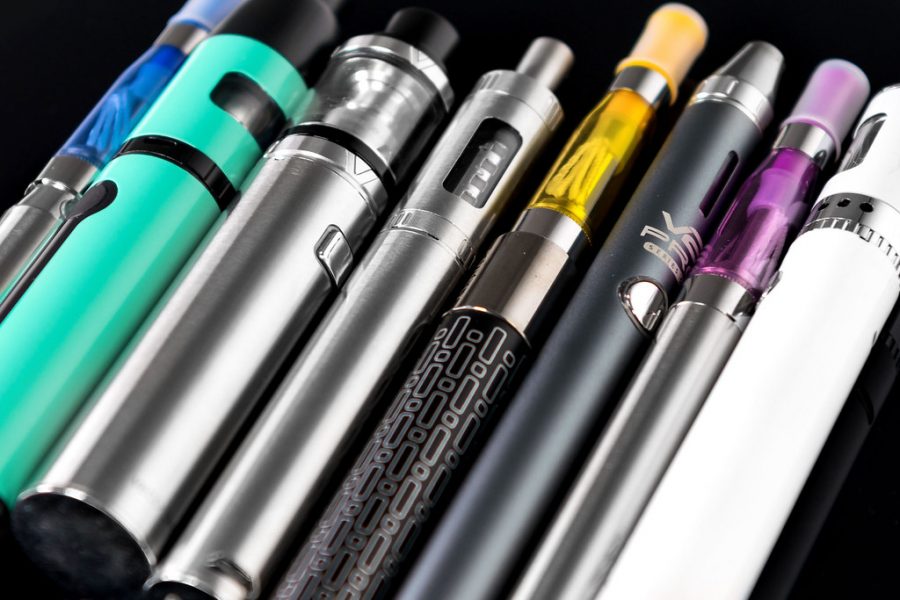Vapes modernize over time
Creative commons photo courtesy of Vaping360 vaping360.com/best-vape-pen/
The amount of nicotine in one standard JUUL cartridge is roughly equal to the amount of nicotine in a pack of cigarettes, or about 200 puffs, according to the JUUL website. https://creativecommons.org/licenses/by/2.0/
May 10, 2019
With a 78 percent reported increase in usage among high schools students in the past year according to the FDA, vaping is becoming more than just a “fad” in teenagers’ lives. But with an increase in sales of popular e-cigarettes like JUUL comes a decrease in knowledge of how these products affect their health.
Due to the common misconception that vaping is a safer alternative to smoking, and thus safe, many users don’t realize the chemicals effect on their body.
Truth Initiative, an anti-smoking website with the goal of “inspiring tobacco-free lives,” conducted a study to test this theory and reported that 63 percent of JUUL users between 15 and 24 years old did not know that the products contain nicotine.
Before JUUL entered the market in 2015, popular e-cigarette products contained nicotine strengths between roughly 1 and 2.4 percent. This amount, according to Nicvape.com, continues to increase as years pass, surpassing in some cases the nicotine amounts in many popular cigarette companies Marlboro. The amount of nicotine in one standard JUUL cartridge is roughly equal to the amount of nicotine in a pack of cigarettes, or about 200 puffs, according to the JUUL website.
In a recent study, Duke University professor of anesthesiology, pharmacology and cancer biology Sven-Eric Jordt suggested that the chemicals used in e-cigarettes are much more dangerous than they appear. Jordt’s study found that the liquid used in e-cigarettes typically contains propylene glycol, vegetable glycerine, which when combined with flavoring, produce a vapor of chemical compounds that could cause long-standing respiratory problems.
Whether buyers realize it or not, studies are beginning to release evidence trivializing the common misconception that vapes are nothing more than a fruity substitute for cigarettes.





